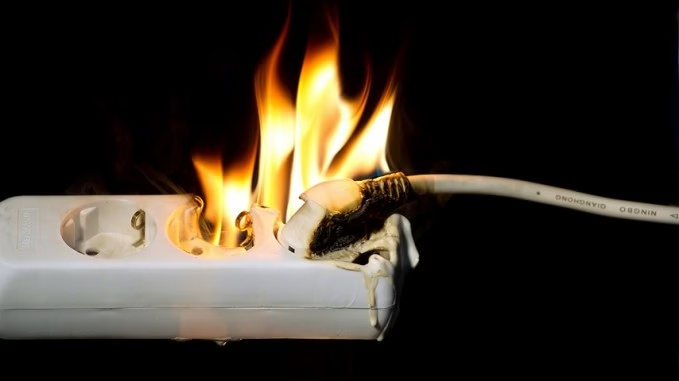
We rely on electricity for almost everything, from charging our phones to running our appliances. But this convenience comes with risks. Electrical faults are a leading cause of house fires, and many of these incidents are preventable. Understanding the dangers and taking proactive steps can protect your home and loved ones from disaster.
This guide will walk you through the common causes of electrical fires, provide practical prevention tips, and explain what to do if the worst happens. For homeowners in Adelaide, knowing when to call a professional electrician, like the trusted team at iElectrical, is a crucial part of keeping your home safe.
Understanding Electrical Fire Risks
Electrical fires can start for various reasons, often silently and without obvious warning signs. Being aware of the common culprits is the first step toward prevention.
Faulty or Outdated Wiring
Many older homes have wiring that isn’t equipped to handle the demands of modern electronics. Over time, insulation can degrade, and connections can loosen. This can lead to overheating and sparks, creating a significant fire hazard. If you live in an older property, it’s wise to have your wiring inspected by a qualified electrician in Adelaide.
Overloaded Circuits and Power Boards
Plugging too many high-power appliances into a single outlet or power board can overload the circuit. This generates excessive heat, which can melt the plastic components and ignite nearby flammable materials. Always be mindful of how many devices are connected to one circuit.
Damaged Cords and Appliances
Frayed, cracked, or damaged electrical cords expose live wires, creating a risk of electric shock and fire. Similarly, faulty appliances can malfunction and overheat. Regularly inspect your cords and appliances for signs of wear and tear, and replace them if they appear damaged.
Improper Use of Extension Cords
Extension cords are intended for temporary use only. Using them as a permanent solution for powering appliances can lead to overheating and increase the risk of a fire. Never run extension cords under rugs or furniture, as this can trap heat and damage the cord.
How to Prevent Electrical Fires
Prevention is your best defense against electrical fires. These simple, practical steps can significantly reduce the risk in your home.
- Inspect Your Cords Regularly: Check all electrical cords for fraying, cracking, or other damage. Replace any that are not in perfect condition.
- Don’t Overload Outlets: Avoid plugging too many devices into one outlet. Use power boards with built-in overload protection.
- Use Appliances Safely: Give appliances like TVs and computers space for air to circulate and prevent overheating. Unplug small appliances like toasters and coffee makers when not in use.
- Install Safety Switches (RCDs): A Residual Current Device (RCD) is a life-saving device that quickly cuts off power if a fault is detected, preventing electric shock and reducing fire risk.
- Schedule Professional Inspections: The most effective way to ensure your home’s electrical system is safe is to have it inspected by a professional. The experts at iElectrical can identify hidden issues, upgrade outdated components, and provide peace of mind.
What to Do in Case of an Electrical Fire
If you experience an electrical fire, acting quickly and correctly is crucial.
- Cut the Power: If it’s safe to do so, turn off the power to the affected circuit at your main switchboard. If you can’t reach the switchboard, don’t risk it.
- Use the Right Extinguisher: Never use water on an electrical fire, as it can conduct electricity and make the situation worse. Use a dry chemical fire extinguisher (Class C) if you have one and are confident in using it. If the fire is small, you can sometimes smother it with a heavy blanket or baking soda.
- Evacuate Immediately: Your safety is the top priority. If the fire is spreading or you can’t control it, get everyone out of the house immediately.
- Call Emergency Services: Once you are safely outside, call the fire department.
- Call a Professional Electrician: After the fire is out and the immediate danger has passed, do not use your electrical system until it has been inspected and cleared by a qualified electrician in Adelaide. The team at iElectrical can assess the damage, perform necessary repairs, and ensure your home is safe.
Conclusion
Protecting your home from electrical fires requires a combination of awareness, good habits, and professional expertise. By following these safety tips and scheduling regular inspections, you can significantly reduce your risk. For comprehensive electrical services and expert advice, Adelaide residents can rely on the skilled team at iElectrical. Don’t wait for a problem to arise—prioritize your electrical safety today.





